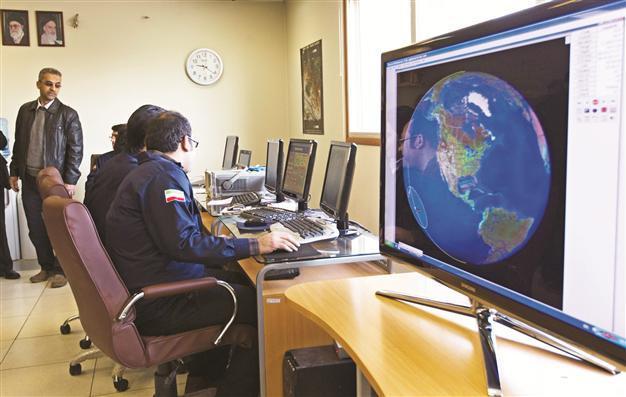Iranian-Azeri tensions rising over Israeli deal
BAKU / TEHRAN

Iranian Space Agency (ISA) personnel monitor signals of the Navid-1 satellite at
the facility in Mahdasht, which was opened to visiting journalists for the first time. REUTERS photo
Tensions between Azerbaijan and Iran have again been raised after Baku bought arms worth $1.5 billion from Tehran’s foe Israel.
Azerbaijan’s ambassador was summoned to Iran’s Foreign Ministry Feb. 28, to explain the weapons deal and to receive a warning that Israel must not be permitted to use Azerbaijan in order to stage “terrorist acts” against Iran. The Azerbaijani Foreign Ministry said the reported weapons purchases, which it did not confirm had been made, were not intended to threaten Iran.
“Our foreign policy is not directed against anyone else,” Azerbaijani Foreign Ministry spokesman Elman Abdullayev said at a news conference, Agence France-Presse reported. Iranian news agencies reported Feb. 28 that Azerbaijan’s ambassador to Tehran, Javanshir Akhundov, had acknowledged the arms deal.
Akhundov explained that the weapons were bought “to liberate occupied Azerbaijani land,” a reference to the disputed region of Nagorno-Karabakh, which was seized from Azerbaijan by Armenian forces during a war in the 1990s. The foreign ministry also cited the continuing conflict with neighbor Armenia over Karabakh, where no peace deal has yet been signed, despite years of negotiations since the 1994 ceasefire.
Earlier this month, Iran demanded that Azerbaijan prevent Israel’s Mossad intelligence agency from using Azeri territory to launch operations against Iran. Israel says it has foiled Iranian-sponsored attacks against Israeli targets in Azerbaijan.
US, Israel discuss ‘time’ of attack
As the tension simmers between Azerbaijan and Iran over Israel, another source of tension between Iran and Israel has not settled down. Chairman of the U.S. Joint Chiefs of Staff General Martin Dempsey told a Senate panel Feb. 28 that he had not counseled Israel against attacking Iran over its nuclear program. “We’ve had a conversation with them about time, the issue of time,” he said, Israeli news website Ynet reported. Dempsey was referring to his most recent visit to Israel a month ago.
Meanwhile, Iran’s nuclear chief said no nuclear activity had occurred at the military complex U.N.
inspectors seek to visit, but noted that any decision to open the site rests with the armed forces. The Parchin complex, southeast of Tehran, has often been mentioned in the West as a suspected base for secret nuclear work, a claim Iran denies. Nuclear chief Fereidoun Abbasi was quoted by the official IRNA news agency as saying all nuclear facilities were open to the U.N.’s International Atomic Energy Agency, the Associated Press reported. The IAEA has requested access to Parchin, but permission has not been granted.
